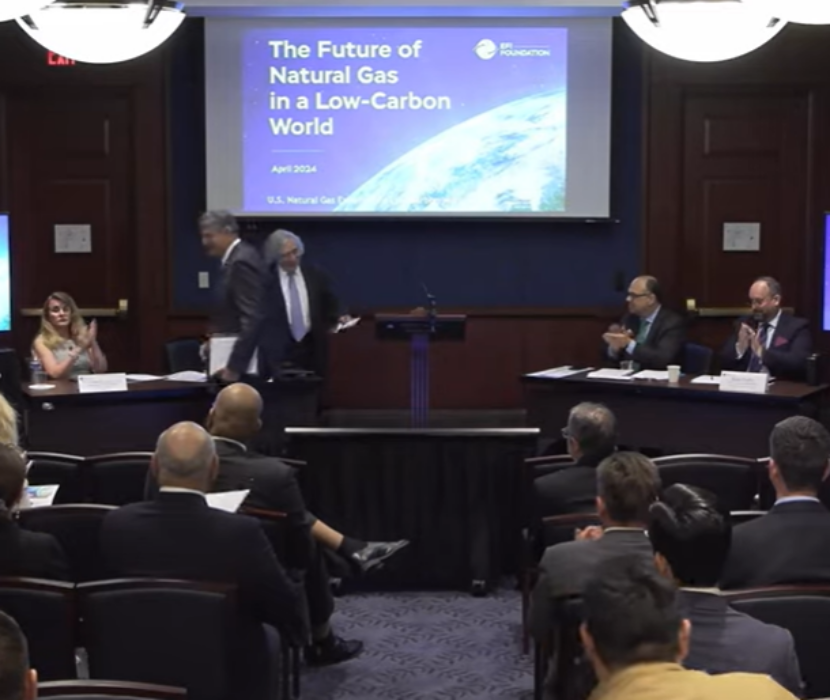
In June, EFI Foundation CEO Ernest Moniz made virtual appearances at the Singapore-based Ecosperity Week conference, offering insights on how the Inflation Reduction Act (IRA) and the EU Green Deal are the key first steps toward successful implementation of energy infrastructure projects and resilient global supply chains. The Ecosperity Week conference—its name a combination of ecology and prosperity—is held annually and brings together policymakers, business leaders, and investors from around the world to discuss global sustainable development. In a talk titled “Accessing the Implications of the IRA and EU Green Deal,” Moniz outlined a summary of the recent U.S. clean energy legislation, as well as other timely clean energy topics.
Moniz named some of the most recent U.S. industrial policy legislation, including the Bipartisan Infrastructure Law, the CHIPS/Science Act, and the IRA, all of which passed within 9 months of each other. Moniz discussed the IRA in more detail and stated that it will help greenhouse gas emissions go down, help create more U.S. jobs, and help stabilize inflation levels over time.
Most recently (on June 3, 2023), the United States passed the Fiscal Responsibility Act, which will help expedite the permitting process of energy infrastructure projects. Permitting has historically been a roadblock for energy infrastructure, as it sometimes takes longer to obtain permits than it does to build the actual projects. Without this legislation, the United States would not be able to reach any of its climate goals.
“Industrial policy, while challenging given its historical checkered history, is essential to reaching the kinds of climate goals that we have in any kind of reasonable time frame,” Moniz explained. “Successful implementation is absolutely critical.”
Along with the recent U.S. legislation, Moniz mentioned some of the recent shifts in conversation in the clean energy sector. The Russian invasion of Ukraine has reignited the issue of energy security and its ties to climate change, which are now more commonly viewed as one conversation and no longer separate issues. He also noted there is now a consensus that the clean energy transition will need clean electricity sources beyond wind and solar. These clean sources include nuclear, carbon capture and sequestration, and clean fuels such as hydrogen.
Although these updates are moving in the right direction, Moniz said we will need more drastic measures to create long lasting and effective change in the United States.
“I would argue that, eventually, extreme weather will be the tipping point in the U.S. for getting a more coherent climate policy because of public opinion,” Moniz said.
— Callyn Bloch, Communications Fellow
(Share this post with others.)




